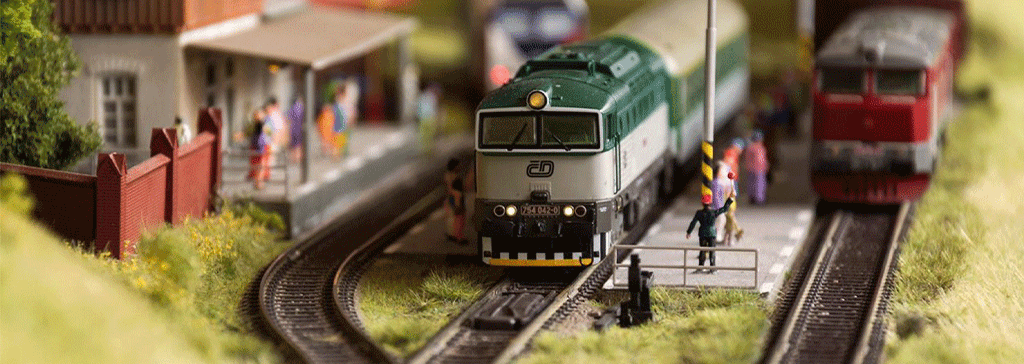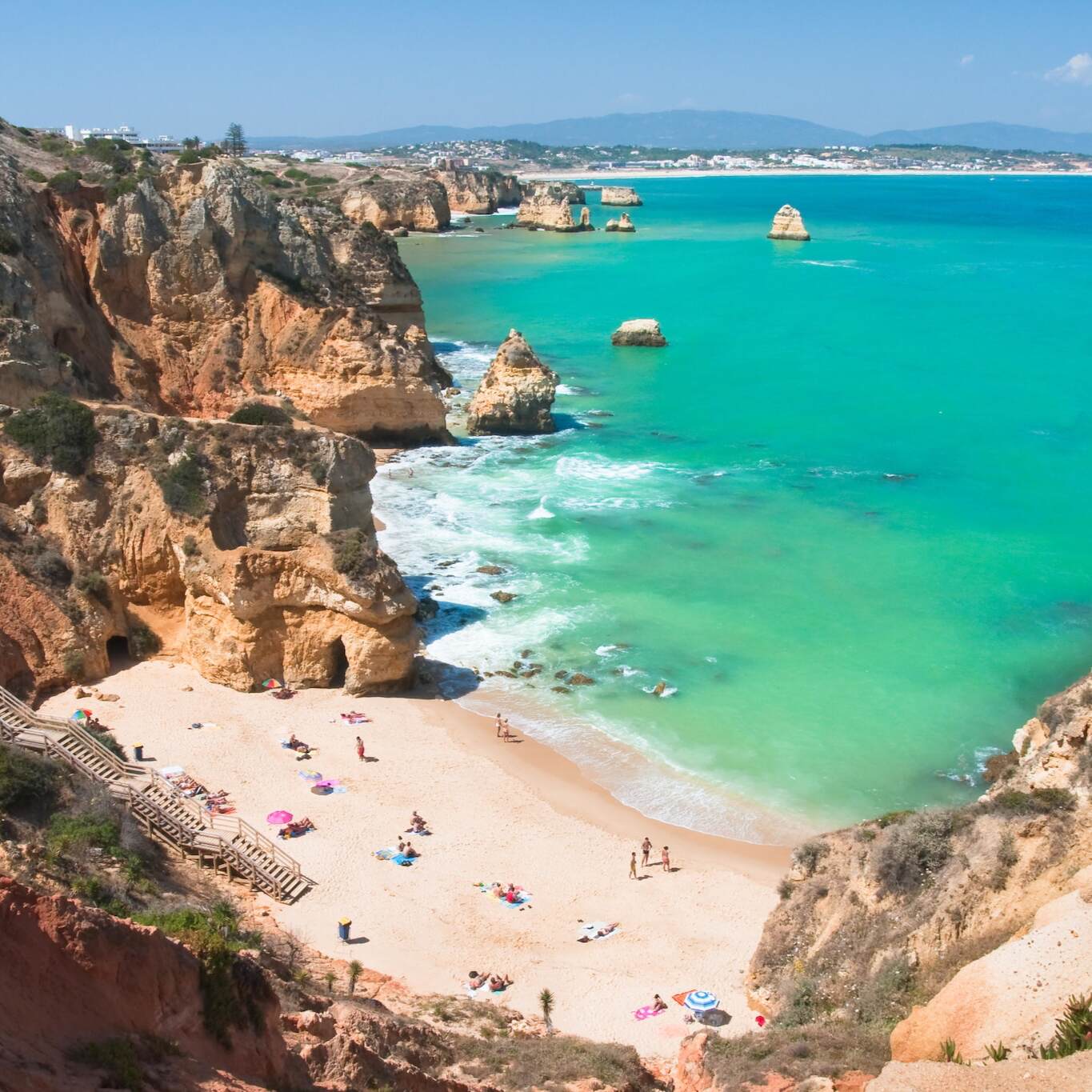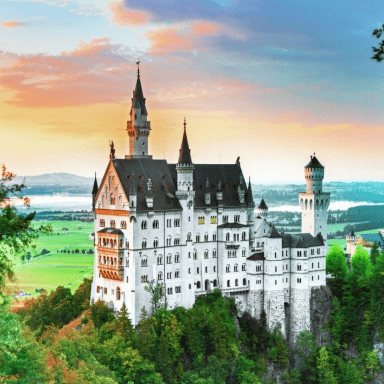

Off the Beaten Railroad
Delight your inner railway fan with these 12 rail-related curiosities
If you are reading these lines, chances are that you need little convincing of the charm of trains, railroads, stations, and everything related to them. Happily, Europe has plenty that will delight the rail transport fan inside you. Its extensive use of intercity, urban, suburban and metropolitan railways has resulted in countless curiosities, unique or abandoned stations, rail rides with a difference, and more. The local guides of Spotted by Locals have picked out 12 of these rail-related curiosities, all of which you can visit yourself by traveling by train around Europe (with Global Pass of course)!
A parked train in Athens dedicated to arts & entertainment
Train carriages often serve as bars and/or restaurants, but have you ever watched a theatrical or dance performance inside a train car? Sounds like something straight out of a book or movie. To Treno Sto Rouf in Athens is an old train in its natural environment, a train station, with the difference that this one not only has a bar and restaurant built around it – you can also find assorted dance and theater performances in different carriages. In summer you can even sit outside on the platformand enjoy a drink next to the versatile choo-choo.

Listen to live music on the go in Manchester
We just mentioned performances on a train that won’t be going anywhere anytime soon, but how about regular concerts on actual, working, moving trains? Catch a suburban train from Manchester’s Piccadilly station to either Glossop or Hathersage on specific days and itineraries and you can listen to a live band playing onboard for the whole duration of the Folk Train’s trip! Each month you can travel with a different British folk band!

Play the piano in the Parisian metro
If you yourself have a musical talent, you can show off your skills at one of the À vous de jouer free-to-play pianos installed by SNCF (the French national railway company) in each of Paris’ major metro stations, e.g. Saint-Lazare, Montparnasse, Austerlitz, Gare de Lyon, Gare du Nord and Gare de l’Est. Or you can simply listen to other people and enjoy their melodic improvisations.

A ship on a railway
You might be one of those people who are proud of the fact that they have ridden a train into a ferry – but have you ever been on a ship on rails? In Munich, you can do just that – and knock that off your bucket list. The guy who runs the Alte Utting is crazy enough to have secured a boat and asked for permission to use an old railway bridge with nice views, which he then had split in half, transported on site and welded back together again. The ship is fully accessible, even the hull, and here you’ll find free concerts, good food and a joyous spirit. Perfect for a sundowner Augustiner.

A roundabout in Turin dedicated to local historical trains
Rotonda O.G.R. (or roundabout) in Turin has two old trains in the middle of it: an old locomotive from the early 1920s that was used as a powerful way to climb central Italy’s mountainous railways; and a newer one, the prototype of an old Italian high-speed train. Have a seat on one of the benches next to them, ponder their symbolism and how they bridge the past, present and future.

Edinburgh’s abandoned tracks put to gooduse
How can long-disused train tracks best be given new life? In Edinburgh, there are miles of hidden criss-crossing cycling and walking paths based on these old tracks, some going as far back as the 19th century, and they’ve been organized into a proper network (here’s a clever map). One of the best routes, where you won’t see a single car but plenty of locals on foot or bikes, is the one from Scotland Street in the New Town to New haven and the Firth of Forth. This route has a number of tunnels along it, as well as a former station, so you will be constantly reminded of its original use.

Madrid’s ghost metro station
Estación de Chamberí used to be on Madrid’s metro line 1, first inaugurated in 1919. As trains became longer, they could no longer fit into the old station, so it was closed in the ‘60s. It’s snuck between the Iglesias and Bilbao Stations, and while traveling through, you will see it dimly lit and eerily preserved, frozen in the 1920s with old tiles, advertisements and all. You can even visit it at specified times, and the fact that guest numbers are controlled makes the experience even more special.

Helsinki’s trainspotter bridge
Linnunlaulun silta (Linnunlaulu bridge) connects the neighborhood of Kallio and the park-like Linnunlaulu area, known for its beautiful wooden villas. The bridge offers a great view of the city center, the villas nearby and Tokoinranta park and bay, but is also a beloved place for Helsinki’s trainspotters and rail enthusiasts to gather, as all trains to and from Helsinki pass under this bridge and have done so since forever.

A rail tour through Berlin’s history and street art
Berlin’s S41 & S42 run along the famous Ringbahn, clockwise and counterclockwise, respectively. This 23.3-mile circuit takes about an hour to complete and connects the East and West. It has distinguished itself as a real street art & graffiti gallery: countless international heavy-hitters have made the buildings surrounding the tracks their canvas, and some of them are even legal! The route itself will take you through the city’s living history. It’s also Berlin’s “party train”, and hopping on and off it at night is an experience by itself.

Prague’s art nouveau terminal
Before the opening of the underground part of the station and the highway in front of the building in the ’70s, this part of Prague’s old main train station, decorated in an Art Nouveau style, was where you would buy your ticket and wait for your train. Look up and you’ll still see the coats of arms of the cities connected with this station by railway at the time of its creation, more than 120 years ago. Fantova Kavárna refers to the café inside the building, but you can also stay outside and feel the rush of long-hault raveling and the sound of distant trains.

Play a game of international poetry in the Budapest metro
You can find Hungarian and Portuguese poems in Budapest’s Deák Tér subway station, on line 3. The Hungarian poems are in Portuguese and vice versa, and they’re laid out on characteristic Portuguese ceramic tiles. You can make a game out of finding them all – just remember to buy a subway ticket! The tiles are the works of Portuguese painter Joao Vieira.

Hip street art in a Rome metro station
Metro Spagna is right next to Rome’s famous Spanish Steps. The whole station had a makeover in 2014, when street artists who were participating in a different exhibition were invited to paint one or more walls inside it. You’ll find works by the likes of Eron, Seth or C215, one of whose signature cats overlooks the main entrance and whose Pope waits for you at the ticket booth.

You might like this as well:
-
![rumania-bucharest-buildings-colors]() Where The Locals Go In Bucharest Want to know where the Bucharest locals go? When in Romania, head to Bucharest by train to check out these hidden treasures.
Where The Locals Go In Bucharest Want to know where the Bucharest locals go? When in Romania, head to Bucharest by train to check out these hidden treasures. -
![austria-vienna-street-musicians-kid]() Where The Locals Go In Vienna Want to know the best things to do in Vienna to feel like a local? Here's a list of less predictable activities for a more authentic experience in Austria's capital.
Where The Locals Go In Vienna Want to know the best things to do in Vienna to feel like a local? Here's a list of less predictable activities for a more authentic experience in Austria's capital.
Change of currency
You cannot change the currency once you have a Pass in your cart. Remove the Pass, and then change the currency on the website header.







